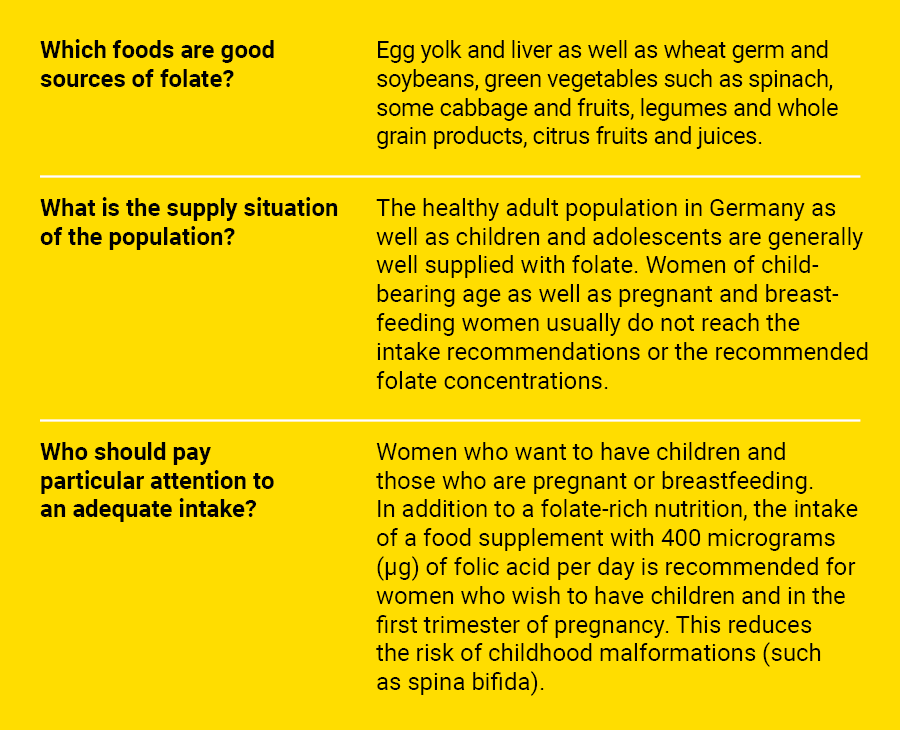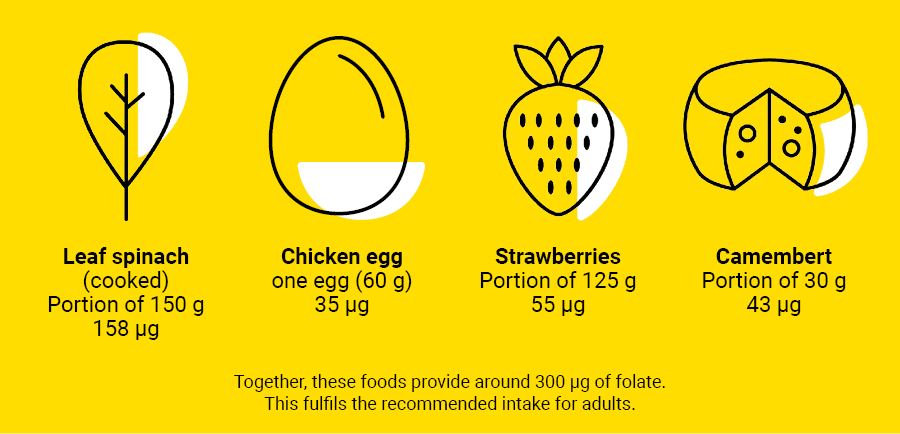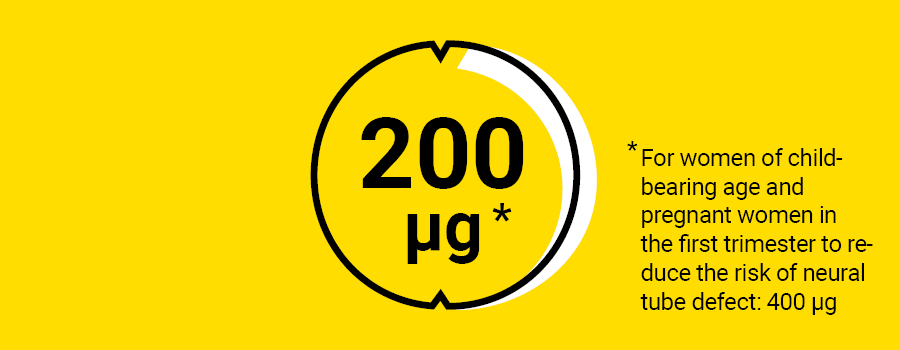You are here:
Folate
Folate is the generic term for a water-soluble vitamin that is essential for human health. The synthetically produced form of this vitamin, which is contained in food supplements, fortified foods or in medicines, is called folic acid.
Folates are found in both animal and plant foods. Good natural sources are green vegetables such as spinach, some cabbages and fruits, legumes and whole grain products, citrus fruits and juices, but also egg yolks and liver. Wheat germ and soybeans are particularly rich in folates.
In brief:
 |
In the body, the folates ingested with food are converted into the active form, tetrahydrofolate. In this active form, they are involved in a variety of metabolic processes as carriers of molecular structures with one carbon atom (C1 groups). Among other things they participate in the synthesis of the hereditary molecule DNA. The vitamin is thus of particular importance for cell division and growth processes.
Folate deficiency can cause symptoms such as anaemia, cell division disorders, digestive disorders and changes in the mucous membranes. Taking folic acid before and in the first months of pregnancy can reduce the risk of neural tube defects (NTD), i.e. incomplete closure of the neural tube developing in the child.
Normal folate requirement can be met through a balanced, varied diet with plenty of vegetables, legumes and wholemeal products. Even though measurements of biomarkers for folate supply in the blood indicate that the adult population in Germany is well supplied with folate overall, women of childbearing age fall far short of the folate levels recommended by the World Health Organisation for NTD risk reduction.
Good sources of folate when following a vegetarian diet:
 |
Especially during pregnancy and breastfeeding, women should therefore pay attention to a folate-rich diet. In addition, women who want to or could become pregnant and women in the first trimester of pregnancy should supplement their diet with folic acid supplements (400 micrograms (µg) per day). For the general population, there is no scientific evidence for a benefit of folic acid supplements if the supply is adequate. On the other hand, the risk of adverse effects increases with permanently high folic acid intakes above the maximum tolerable daily intake of 1000 µg derived by the European Food Safety Authority (EFSA).
Proposed maximum level for the addition of folic acid to food supplements (per daily dose of an individual product)
 |
In order to provide consumers with a significant additional nutrient intake via food supplements when needed and at the same time protect well-supplied people from excessive intake, the German Federal Institute for Risk Assessment (BfR) recommends not adding more than 200 µg of folic acid per daily dose to a food supplement. In addition, food supplements with 400 µg folic acid per daily dose should be available for intake before and during pregnancy.
FAQ
(1)| Date | Title | Size |
|---|---|---|
|
02.04.2015 Updated BfR FAQ
|
Frequently asked questions about folate and folic acid |
40.4 KB
|
Press information
(5)| Date | Title | Keywords |
|---|---|---|
|
22.02.2022 07/2022
|
Iodine, folic acid and pregnancy - practical advice | folic acid , iodine, pregnancy |
|
26.01.2022 02/2022
|
Planning a Pregnancy? - Don’t Forget Your Folic Acid! | folic acid , pregnancy |
|
19.06.2014 15/2014
|
Sufficient intake of iodine and folic acid are important for pregnant and breastfeeding women | folic acid , iodine, pregnancy |
|
27.09.2005 30/2005
|
Folic acid intake in Germany is inadequate | |
|
20.01.2004 01/2004
|
More folic acid, less salt and junk food! |

